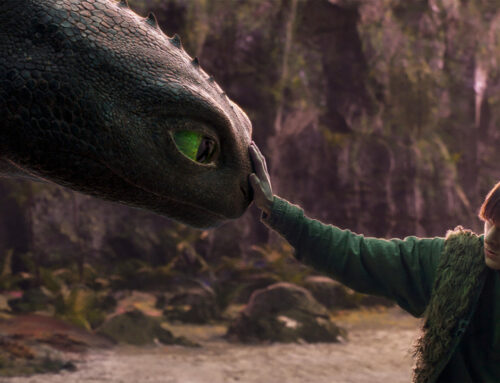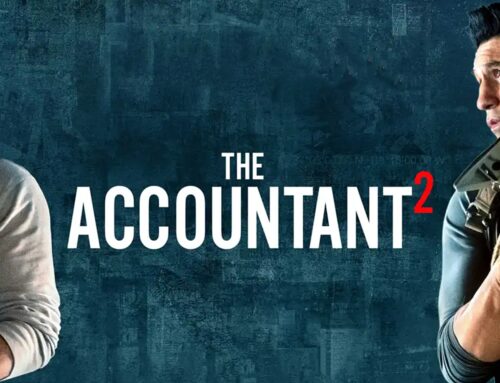Steve Jobs would have HATED this movie. Where Jobs the man was a revolutionary thinker outside the box, JOBS the movie is a swamp of cliches. Where Jobs the man was a detailed and exacting mass of conundrums, JOBS the film is a hodgepodge of carelessly assembled factoids, loose ends, facile conclusions, and haphazard montages. Where Jobs sought elegant solutions that seemed almost intuitively inevitable, the film is a clumsy contrivance anchored by an awkward, self-conscious impersonation of a performance by Ashton Kutcher– that isn’t remotely lifelike. JOBS is a botch from beginning to end.
JOBS the movie begins as a flash back– and then never circles back to where it began. We see an ailing Jobs– who later died of cancer–take the stage and introduce the iPod– “a thousand songs in your pocket.” OK. I’m reminded of just how extraordinary that is. This is gonna be good. How did he get there? Who is this person? How does he think? What makes him tick? I’m ready. We move back in time to catch him sleeping on a couch, cutting classes at Reed College and after a convoluted conversation with a professor (James Woods) who’s trying to get him to drop back into school, he stumbles upon a young woman sitting under a tree doing calligraphy. He sleeps with her, signs up for calligraphy class, takes some acid with his actual girlfriend, has a wild trip that montages us through a morass of loopy images with a fleeting reference to his being adopted, and ends with him falling over in a field. HUH? I’m starting to get irritated after this dose of filmburger helper. The film is now wasting my time and hoping I won’t notice.
We later meet Steve’s seemingly lovely parents who have offered him the garage to start building computers and assembling what will become the company and the team he later screws: Steve Wozniak (an appealing and authentic Josh Gad) and the founding Apple team. We see him cheat “Woz” out of their first few hundred dollars profit. We see him do this later to other colleagues. We watch as he unceremoniously dumps his pregnant girlfriend in a fit of rage, and later denies paternity. We see him fly off the handle at random moments– on the phone screaming at Bill Gates, and firing an employee who dares to suggest that fonts are not that important. (Ah– remember that incident with calligraphy???) At other times he coolly negotiates elaborate business deals with split second timing and uber-confidence. Later, after he’s been fired by his own company, the film skips a big chunk of his life during which we are given to understand that he has married, settled down, and seamlessly reconnected with the daughter he once renounced but had previously named a computer after (the “Lisa”).
We have no way to interpret ANY of this because no context has been provided. The amateurish filmmakers– director Joshua Michael Stern and his inexperienced cohort, writer Matt Whiteley, demonstrate no intrinsic understanding of their subject, or even a point of view about him as a frame of reference. And so we are left adrift to assemble these incoherent pieces of a complex human being’s life, moving through each episode, each seemingly disconnected from one another, and left to make sense of it all on our own. And just when we need no explanation, we get ham- fisted hunks of dialogue where Kutcher says things like : “I just can’t work for anybody. I need to be independent.” Eureka!
Kutcher’s performance doesn’t fill in the remaining gaps. In fact, it’s laughable. We know he’s got the loping, hunched-shoulder, head-down walk right– the movie focuses on this over and over again, from behind and overhead in close-up, from below tracking him as he stalks the hallways, in silhouette from afar. Kutcher appears quite proud of the gait which looks like something he really worked hard on in acting class. He might have spent some time getting inside the character. He basically has three modes: quietly inscrutable, excitedly pontificating, or foaming at the mouth furious. There’s no modulation among the various states, no semblance of a cohesive personality that could encompass these disparate characteristics; the actor, apparently with no tools, has not provided the psychological and emotional glue that would hold such a character together, and so it wobbles, Frankenstein-like before our very eyes.
In the film’s waning moments, Jobs stumbles upon a young British designer in his company who spouts the “Jobs” credo: the importance of finding the perfect union of form and function, giving the common people the tools to control their world. (By the way, though the film never acknowledges it, apparently Wozniak was responsible for at least some of this thinking.) It’s another nauseating moment because it doesn’t need saying. Jobs– flawed as he was– remains one of the most intriguing human beings who ever lived and transformed the way we live life on the planet. Jobs did his job. The film has not. At this point, I think the best way to understand the man behind the Mac, is to operate one; then wait for a better film. Hurry up Aaron Sorkin.






[…] “Steve Jobs would have HATED this movie.” – Joyce Kulhawik, Joyce’s Choices […]